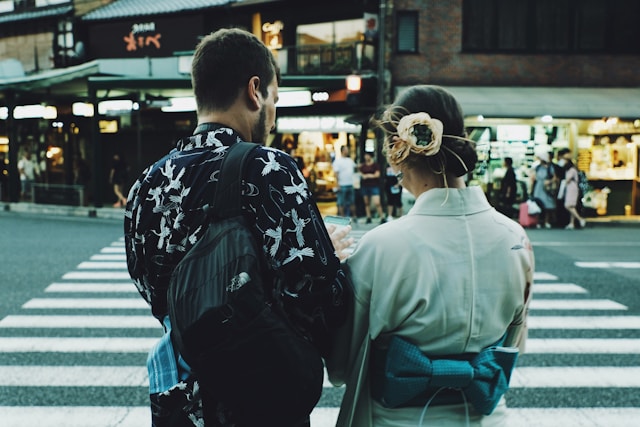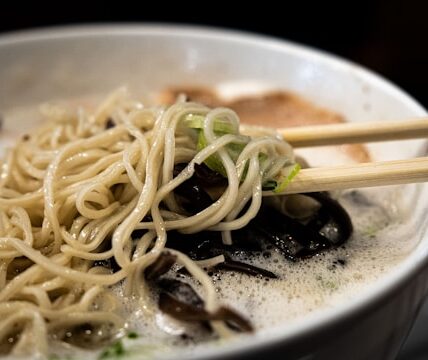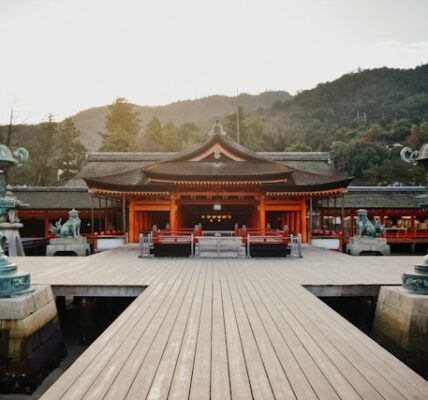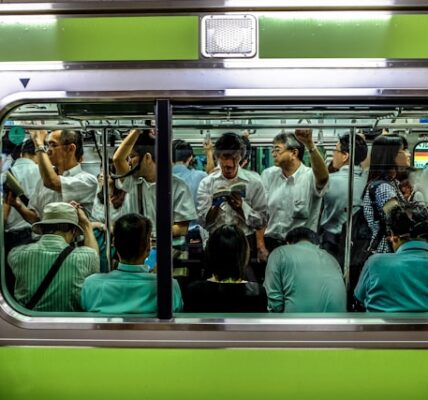
Japan Culture 101: 5 Everyday Customs Every Visitor Should Know
Planning a trip to Japan? Beyond the sushi, temples, and cherry blossoms, understanding everyday Japanese customs will make your travel experience smoother and more respectful. Whether you’re wandering through Tokyo or enjoying the quiet charm of a ryokan, these five cultural habits reflect the beauty and mindfulness of Japan culture.
1. Bowing Is More Than Just a Greeting
In Japan, bowing isn’t just a way to say “hello” — it’s a form of non-verbal communication used to express gratitude, apology, and respect.
🧭 Travel Tip: Use a slight 15° bow for casual greetings. Deeper bows (30°–45°) are reserved for formal situations or apologies.
💡 Example: When entering a local ramen shop, offer a small bow to the staff — it shows appreciation and cultural awareness.
2. Always Remove Your Shoes Indoors
One of the most important Japanese customs is removing shoes before entering homes, ryokans (traditional inns), and certain restaurants or temples.
🧦 Pro Tip: Always wear clean socks — holes are a hidden source of embarrassment!
🧭 Travel Tip: Look for a shoe rack or genkan (entry area) near the door. If provided, switch to indoor slippers before stepping onto tatami mats.
3. Silence Is Golden in Public Spaces
In Japan, silence in public places — especially on trains — is seen as respectful. Loud conversations or phone calls in public transport are considered rude.
🌸 Why It Matters: This reflects the cultural value of harmony and consideration for others’ comfort.
🧭 Travel Tip: When riding the Shinkansen or local trains, observe the quiet atmosphere — and enjoy the peaceful journey.
4. Use Both Hands When Giving or Receiving Money
In Japanese etiquette, small gestures speak volumes. When paying at shops or restaurants, use both hands when giving or receiving money.
💴 Cultural Insight: You’ll often see a small tray near the register. Place your money there instead of handing it directly.
🧭 Travel Tip: This simple act shows respect and leaves a good impression on locals.
5. Say “Itadakimasu” and “Gochisousama” at Meals
Before and after a meal, Japanese people say:
- “Itadakimasu” (before eating) – to express gratitude for the food
- “Gochisousama deshita” (after eating) – to thank the cook or provider
🥢 Even If You’re Shy: Saying these phrases, even quietly, shows cultural respect and may earn you a smile from the restaurant staff.
🧭 Travel Tip: Try this at a local izakaya — the staff will likely appreciate your effort to respect Japanese dining etiquette.
🧳 Final Thoughts: Embrace Japan Culture One Custom at a Time
Whether you’re strolling through Shibuya or exploring hidden villages in Nara, embracing these small Japan culture customs will help you connect with locals and travel more meaningfully. It’s not just about sightseeing — it’s about experiencing Japan with empathy and understanding.
Want more cultural travel tips? Follow us for local guides, etiquette insights, and the best food spots in Japan!




